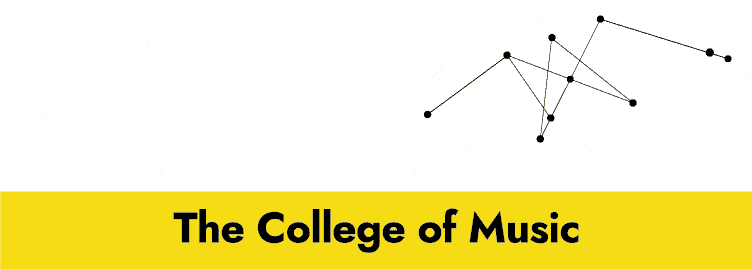
Here at WaterBear, we’re ever-mindful that the music business keeps changing. Also that, as Charles Darwin once said, “…those who survive are the ones who adapt best to the new conditions.”
In this blog, I’ll be discussing some of the pros and cons of signing with indie labels compared with the major record companies. I’ll also be exclusively interviewing another industry insider expert to get their valuable perspective on the business and their advice for aspiring and up-and-coming artists, like yourselves.
When considering a recording deal, it’s vital to match yourself, your band and your brand with the right label. These days, with the music business continuing to change and evolve, there are more options available to the up-and-coming artists; even ‘no deal’ options for bands who operate outside the traditional labels system, self-publishing their songs, album, etc. often making use of new media channels for distribution, publicity and creating fan followings. WaterBear has plenty of advice on such approaches – for example check out Bruce John Dickinson’s video blogs. The college course content is also full of useful info.
If you’re after a deal with a label, at some point you’ll have to weigh up the pros and cons of whether to sign with an independent label or a major record company. Which is best suited for you? Which will work best at given points in your career?
N.B. What we mean by the major record labels are the large media corporations, based in New York and Los Angeles, which tend to sign major acts. We’re talking about Sony, Universal, Capitol Records, etc. Such companies have a lot of money behind them. This enables them to fund the biggest artists on the block, throw big budgets into promotions and marketing and so forth. What’s more, their resources, established presence and contacts give such labels huge clout. Naturally enough, many up-and-coming artists aspire to sign with them.
However, it’s not as simple as it seems and there are many issues to be aware of, especially in this ever-changing business. The rise of the digital music market, along with the impact of piracy (given leverage by peer-to-peer networks) has hit the major labels hard. They’re fighting back, supporting legal streaming services such as Spotify (as we discussed in an earlier blog), digital music retail stores such as iTunes and Amazon. Despite this, major releases still get leaked and spread via the Net before their official release.
The impact on the major labels and their revenue and control of the marketplace has been considerable. This has given smaller, indie labels a chance to shine in this brave new world. We’ll discuss the pros and cons of signing to an indie label a little later. Now, though, we’re delighted to exclusively interview another industry expert, Dante Bonutto.
Dante has worked in A&R (Artist & Repertoire) for various labels, including Universal Music Group, and is the head of Spinefarm Records and Snakefarm Records’ European team. He’s also been described as “a legend in rock magazine circles” and has written for Record Mirror, Kerrang! RAW, Classic Rock Magazine, and other publications.
HI Dante. Thank you for speaking to us and sharing your insights with WaterBear.
Q1. Could you please tell us a little about Spinefarm/Snakefarm?
“Spinefarm Records started life as a highly-successful independent label in Finland, with some of its early signings including Nightwish & Children Of Bodom; acts who continue to enjoy considerable kudos and success in the international arena. Universal Music Group acquired Spinefarm in the early 2000’s, and a UK office was set up a few years later to spearhead the development of the label, the idea being to build a genuinely global set-up based on signature artists, plus a structure that empowers and encourages those artists to deliver their music and their vision without compromise. Key to the rapid rise of the label has been the opening of a powerful US office, from where the development of all aspects of Spinefarm activity are now overseen.
“Snakefarm Records is a newly-launched imprint of the parent label focussing on the heavier end of country, along with Blues, Soul, Folk and Roots music in general. The intention with Snakefarm is to build a strong global brand that taps into the core qualities of the genre (legacy, tradition, authenticity, etc.), providing something of cultural as well as musical worth.”
“Of course, there’s music to be recorded and albums to be made, and it is often the role of A&R to source producers/studios/mixers/mastering engineers, and to bring the whole project to fruition on a previously-agreed budget. These days, however, with many albums being licensed in as finished masters, the making of the record isn’t always a part of the equation. Choice of singles, however, remains an important A&R function, although the promo team would doubtless have input into this, too.”
Q2. What’s your role as A&R?
“With A&R existing less in its strict traditional sense, the role of the modern A&R person is a varied one, touching on all aspects of a project – marketing, promotion, touring, etc. In other words, anything that makes it possible for the act in question to achieve worldwide success. In this respect, the A&R person is also something of a ‘cheerleader’; first of all, exciting the record company about a new act, then using that excitement to ignite the interest of the wider music-buying public.
“Of course, there’s music to be recorded and albums to be made, and it is often the role of A&R to source producers/studios/mixers/mastering engineers, and to bring the whole project to fruition on a previously-agreed budget. These days, however, with many albums being licensed in as finished masters, the making of the record isn’t always a part of the equation. Choice of singles, however, remains an important A&R function, although the promo team would doubtless have input into this, too.”
Q3. What are the differences between indie/major labels, and the pros and cons of each?
“The main difference is probably that the major label systems tend to function best where there is already momentum and a degree of rising success; then the ‘machine’ can be a powerful and positive force helping to take things from Point A to Point B and beyond. When it comes to developing artists from the ground up, however, this kind of work is often better done by supportive management companies or independent labels, where in theory the workload may be lighter and the need for immediate returns less pressing.”
Q4. How would you say labels have had to adapt over the last few years?
“I think labels are now well-versed in looking at the bigger picture. Rather than simply ‘signing’ an artist, the aim – especially with newer, younger acts – is to effectively join forces with them, creating a meaningful partnership allowing both parties to benefit from down-the-line across-the-board success.”
Q5. Do you have much input into the live side of your roster?
“As I said before, if you bring an act into a company, it is your responsibility to oversee the growth of that act, to create the right kind of climate for success to take place. These days – especially in terms of rock and metal – the live side is a crucial cog in any campaign, so, yes, being involved on that front is pretty much a given. Strategic touring is a powerful driver of sales and artist development, so having a sound knowledge of the live scene plus relationships with agents and promoters is a useful thing… in fact, it’s essential! ”
Q6. How do you go about finding the bands you sign?
“No single way. The media, personal contacts, online, festivals, but I’d say the primary discovery channel is word of mouth – knowing the right people. Also, the more experience you have, the more contacts you will doubtless acquire. Of course, you have to have a good reputation or else people won’t come to you, but if you are well-regarded and professional, it should be the case that a certain amount of projects will naturally move in your direction.”
Q7. What do you look for in a band/artist?
“A singular vision, work ethic, the desire to be a market-leader. Oh, and great songs!”
Q8. Do you have any tips for bands/artists on how to approach labels? Dos and don’ts?
“Probably – don’t approach! It’s generally better to just get going and create some waves. Once you’re out there building a following and being talked about, chances are the labels will start coming to you, which puts you in a position of strength.”
Q9. What has been the biggest challenge for labels over the last few years?
“With the sands of our business shifting pretty constantly, it’s important for labels to be ever-mindful of how best to run their affairs. For me, one of the biggest challenges is finding a way to work with artists or acts on a long-term basis. In the ‘old days’, it was generally the case that a band would be given, say, three albums to find their feet and truly make their mark, but such traditional values no longer apply – which is difficult when you’re dealing with rock and metal acts for whom there is generally no short-cut and the foundations of a secure career need to be planted over time. The answer to this is to employ a long-term strategy that encompasses more than a single release, plus of course a competitive on-the-road element.”
Q10. Where do you see the future?
“I’m very positive about the future, as for every door that closes, many others will open. There’s no turning the clock back, of course, so it’s important to just get on with things and work with bands in a bespoke manner, focussing on those elements that are important to them and will make a difference to their fortunes. The great news is, music plays a bigger part in people’s lives than ever before, which is encouraging for what lies ahead…”
Thanks Dante. Good to talk to you!
Swings and Roundabouts: The Pros and Cons of Signing with an Indie Label
Ok. Let’s define some terms. Any music recording label that operates without the funding or control of the major labels and their parent corporations can be considered as an indie (short for ‘independent’) label. The major labels usually own and operate their own production and distribution infrastructures. Indie labels, by contrast, tend to work with other companies for distribution and publishing. However, indie labels can offer other benefits, which have prompted many artists to sign with them.
Benefits
Diversity & Creative Control
Indie labels tend to be more diverse in the range and kinds of music they sign and work with. There’s less pressure on an artist to conform or compromise for corporate or commercial reasons, such as the need to leverage chart success, or generate immediate returns on the label’s outlay. Indie labels tend to sign acts because they like the music and believe in the artist.
Closer Working Relationships
The smaller size of the indie labels offers a benefit too. Whilst they have smaller staff numbers, their artists are often able to develop closer working relationships with the personnel who work with them. That helps you get in touch with the relevant people when you need to and enjoy closer communication.
Contract Terms
Contractually, you may also find that the smaller indie labels offer greater freedom and flexibility than their larger indie counterparts or the major labels. That can help you retain greater creative control. It can also help you avoid being locked into long-term contracts, which can bind you to a label for multiple albums.
There are of course downsides to working with indie labels:
Downsides & Drawbacks
Finances & Resources
The major labels have financial strength. Indie labels can’t match that. Some indie labels are well-resourced, but others teeter on the brink, trying to break even or make a profit, and some do sink.
The indie labels don’t have the same budgets for recordings, or for promotion and exposure as the major labels. That means that the indies often have to substitute ingenuity for raw budget and be creative with their promotional work to get artists and releases exposure.
Indie labels can’t afford to pay out for large advances, big recording budgets, lavish tour support, major advertising or marketing campaigns, or provide other perks you might get from a major label.
Working Methods
Another aspect to consider are the labels’ working methods and operations. The major labels have more staff, thus more manpower, and often more structured ways of working. The smaller outfits have fewer, less, and less structure. They may still have talent and be effective, though. However, you might find that the larger labels are more efficient and organised, as they have more formalised and established procedures, e.g. their accounting procedures, contracts, etc.
Clout
The other obvious aspect to consider is a given label’s size, leverage and clout. As you might expect, there’s often a sliding scale. The smaller labels have more intimacy and adaptability. However, their smaller coffers don’t give them the purchasing power for recordings, promotions or marketing (as noted above). Also, the smaller labels are unlikely to have the same degree or influence with the press as the major players, who’ve built up contacts and cultivate them via public relations, corporate entertaining, etc.
As you can see, there are pros and cons to signing with an indie label, compared with a major record company. Choose wisely, and take on board Dante Bonutto’s advice!
Special thanks to Dante Bonutto of Spinefarm Records and Snakefarm Records.

- ‘Water bear’ is the common name for a Tardigrade.
- Tardigrades are micro creatures, found everywhere on earth.
- They are the most resilient creatures known.
- They can survive and adapt to their surroundings, even in outer space.
- Their resilience and ability to adapt and survive inspires us in everything we do. We love them.


WaterBear Education Ltd, Hanover House,
118 Queens Road, Brighton BN1 3XG, UK Map
Email: info@waterbear.org.uk
Tel: +44 (0) 1273 726230
WaterBear Sheffield, Unit 4, Gatecrasher,
49 Eyre Lane, Sheffield S1 4RB, UK
Email: infosheffield@waterbear.org.uk
Tel: +44 (0) 1143 992720

WaterBear Education Ltd, Hanover House,
118 Queens Road, Brighton BN1 3XG, UK Map
Email: info@waterbear.org.uk
Tel: +44 (0) 1273 726230
WaterBear Sheffield, Unit 4, Gatecrasher,
49 Eyre Lane, Sheffield S1 4RB, UK
Email: infosheffield@waterbear.org.uk
Tel: +44 (0) 1143 992720
- ‘Water bear’ is the common name for a Tardigrade.
- Tardigrades are micro creatures, found everywhere on earth.
- They are the most resilient creatures known.
- They can survive and adapt to their surroundings, even in outer space.
- Their resilience and ability to adapt and survive inspires us in everything we do. We love them.
